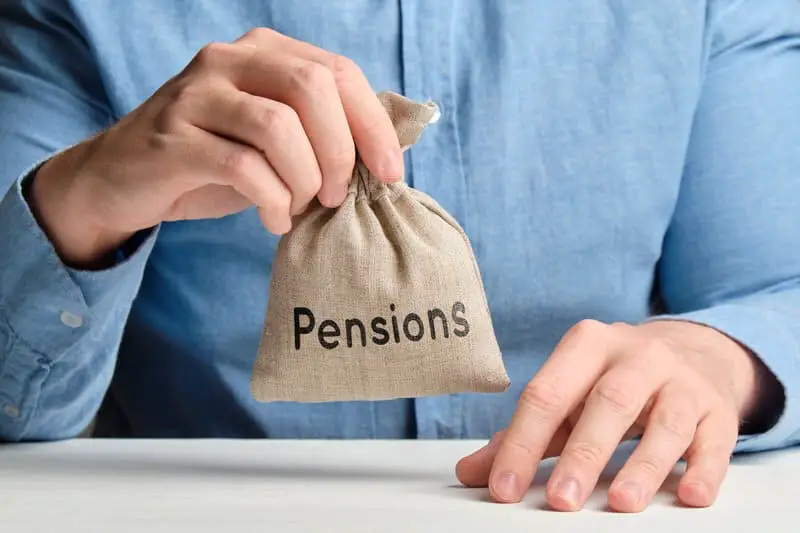One of the biggest dreams of everyone working out there is to retire comfortably. When you are ready to retire, you will need more than Social Security to pay your bills. That welfare typically only offer enough cash to replace about 35% of average earnings.
To know each account’s fundamentals, including the advantages, pitfalls, and gaps between a pension plan vs. a 401(k), please join me on this ride.
A company’s retirement offerings will be the most precious portion of the offer for job benefits. Pensions and 401(k)s would be the most frequent retirement benefits you will encounter, though they operate in radically different ways. A pension ensures you monthly earnings in retirement, while retirement income from your 401(k) program is dependent upon your contributions. If you are fortunate enough to pick between both of these retirement choices, here is what you want to know.
What is a Pension Plan?

A pension is a workplace benefit that offers you as an employee a regular payment in retirement, provided that you’ve met specific eligibility standards. Usually, companies require that you work a minimum amount of years to be entitled to a pension. You need to reach a particular age before obtaining a flow of retirement payments. The retirement benefit is generally calculated using a formula that considers your years of service and earnings.
Your employer is responsible for funding the pension fund. You literarily don’t need to make any contributions to enjoy this benefit. As a result, you have limited control over how you receive your pension. Some businesses give you the option of getting your retirement in a lump sum, but monthly payments are mostly more common.
I prefer the lump sum payment because I can push that large sums into making large purchases. For instance, it can go into reducing my mortgage, car loan, or any pending debts.
Some pension plans may also offer a partner survivorship choice. If you chose this option, you would be entitled to a lower monthly payment, but your partner will be eligible to keep receiving benefits after you die. This option can be a little challenging, if not impossible, to get a retiree to alter this choice. So you should carefully consider your health and life expectancy in addition to that of your partner when determining whether to go into partner survivorship.
“From an employee standpoint, we don’t see any downside to pensions,” says Harry Dalessio, head of institutional retirement plan services at Prudential Retirement. They are sometimes tough to find these days. Just 14% of Fortune 500 companies offered pensions to new hires in 2019.
According to research from international advisory and alternatives business Willis Towers Watson, 59% of large businesses offer retirement programs in 1998.
The fall in pension accessibility is connected to their high price. For example, an employer promises financial support in the form of retirement benefits in exchange for years of service. That promise has turned out to be a costly one, especially now that the baby boomer generation has reached the retirement age.
“You have this massive group of people moving through the system,” says Chad Parks, founder, and CEO of Ubiquity Retirement + Savings, an online provider of 401(k) plans. “It’s like an albatross around the neck of companies.”
The issue is particularly severe in public pensions. A 2019 report by The Pew Charitable Trusts found state pension systems had a 1.28 trillion funding gap in 2017.
While authorities are grappling with paying pensions to teachers and civil servants, private-sector workers don’t need to be concerned about their retirement being dropped to underfunding. The Pension Benefit Guaranty Corporation, a government agency, insures around 37 million private-sector workers.
What is a 401(K) Plan?

Many firms have phased out pension plans. They’ve replaced them with 401(k) plans. 401(K) plans confer the responsibility of saving for retirement to you as an employee. Defined contribution plans were not meant to be the principal retirement plans for employees, but the fact is now that you will probably be relying heavily on them to pay for retirement.
In 2020, you can contribute up to $19,500 into a 401(k) plan. If you are age 50 or older, you are eligible to earn $6,500 in catch-up contributions, for a total yearly contribution of $26,000. In theory, you’d wish to contribute the maximum required.
Companies make contributions to employees’ 401(k) accounts. However, you might need to work a specific number of years to become vested and fully eligible for that money. What is more, companies will generally match a particular proportion of your contributions into the plan, though this might be subject to vesting requirements.
“Don’t leave the free cash on the table,” says Sandy Eichel, wealth management adviser with Northwestern Mutual at the Madison, Wisconsin, area. “I’m constantly surprised at how many people are not taking advantage of the match.”
There are two variations of 401(k) plans, and each provides its tax advantages. Traditional 401(k) programs offer a tax deduction at the time contributions are made. Money grows in the accounts tax-deferred and is subject to standard income taxes when you withdraw at retirement.
The cash withdrawn from an account before you reach age 59 1/2 might be subject to a 10% penalty. After you reach age 72, you have to start making mandatory minimum distributions or pay the penalty equivalent to 50% of the distribution figure.
On the flip side, Roth 401(k) programs don’t offer a deduction for contributions, but you can withdraw tax-free. Like conventional 401(k) accounts, there might be a 10% penalty if you withdraw prematurely, but it only applies to investment earnings.
Considering that the contributions have been taxed, there’s absolutely no penalty for drawing some of the principal. Unlike traditional accounts, Roth 401(k) programs have no mandatory minimum distributions in retirement.
“Taxes are most likely going up soon. The U.S Federal debt has been rising steadily. Sooner or later, taxes will probably rise to the national debt to fulfill its fiscal obligations. Bearing that in mind, investing in a Roth 401(k) instead of a conventional account might be a wise choice.
Benefit Plans vs. Contribution Plan
The main difference between pension and 401(K) is one is a benefit while the other is a contribution. Pension is more of a welfare benefit from your employer with terms and conditions.
On the flip side, 401(K) plans are contributions made by you towards your retirement. Suppose you find an employer that is willing to match your contribution. In that case, that is a great thing, but the responsibility is solely yours.
With a pension plan, the employer promises a fixed monthly benefit towards your retirement plan. For instance, it can be a set figure like $950 every month, or formula may be used to arrive at the amount. The formula may be based on your wages and the number of years you spent in a particular job.
A company’s defined benefit plan, for instance, may offer you a monthly payment equivalent to 1% of your salary over the last five years of employment. Having a defined benefit plan, you understand precisely how much retirement income you can rely on. This allows you to budget accordingly.
Meanwhile, 401(k)s are defined contribution plans that don’t guarantee a set amount of earnings. With a 401(k), your retirement income is dependent on your savings and maybe employer matching gifts. You pick your investments, and your account balance varies based on market profits or losses.
It’s Decision Time – Pension vs. 401(K), Which is Better?

In this debate of which is better between pension and 401(K), I feel pension has a slightly better advantage, and here’s why.
- With a pension, you don’t have to contribute any money of yours. The employers shoulder all that responsibility, and you are guaranteed monthly payment for an entire lifetime.
- The employer mostly funds pension while you primarily fund 401 (k) programs, the employee.
- Employers regulate pension investments while the employee controls 401 (k) investments.
- Pensions offer you guaranteed income for life while 401(k) benefits could be depleted and rely on your investment and withdrawal choices.
There’s a lot to attract you to pension plans. It is essentially a lifetime earnings for all those the pension holder is. If the market falls, you don’t need to be worried about your monthly obligations decreasing.
But using a 401(k), if investments don’t perform as anticipated, it has an immediate influence on your retirement nest egg. You will also be given control over which capital inside an organization’s strategy to put your cash and funds, which comes at a risk. This system looks flawed because it expects you to become a savings and investment expert and make your fund’s best decision.
For instance, You could be putting money in competitive funds when you ought to be investing more in conservative investments or vice versa. To help you make wise choices, many 401(k) plan administrators offer you instructional tools and access to financial advisors to help direct investment choices.
The truth with 401(K) is that many peoples aren’t confident in how they have their cash allocated. Even people who feel as though they can perform their research can gain from talking to an adviser who will help align their investments to lifestyle their objectives.
Another substantial gap between pensions and 401(k) schemes is transparency. While 401(k) programs make it simple for employees to determine where their money is spent and how it’s doing, there’s no such choice with a pension plan. There is not a great deal of space for you to self-direct your investments in a pension plan. You have no say in the running of your fund.
Conclusion
When comparing a pension plan vs. a 401(k), pensions are often seen as the clear winner. However, the smart use of a 401(k) plan can provide benefits for a comfortable retirement. To make the most of your company-sponsored retirement plan, start saving early, maximize your employer’s match and watch your balance grow.
There is a decline in pensions, and this is due to the high cost. Pension plans usually provide less participation flexibility to the sponsoring company and may be complex and expensive to implement, which lacks compulsory employer contributions.
Based on the pension plan’s benefit formula, the company should make mandatory periodic contributions determined by an actuary. Employers are also required to pay premiums to the Pension Benefit Guaranty Corporation (PBGC) on your behalf.
My choice is clear on this topic, but I want to hear from you. Do you think 401(K) is best for you? Let’s rub minds in the comment section.


